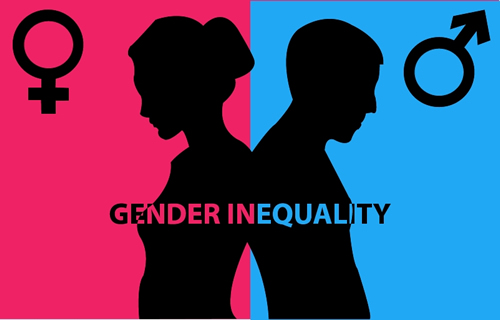Gender Minister calls for intensive efforts against inequality
 Madam Otiko Afisa Djaba, Minister of Gender, Children and Social Protection, has called for intensive effort to address the inequality gap in the country.
Madam Otiko Afisa Djaba, Minister of Gender, Children and Social Protection, has called for intensive effort to address the inequality gap in the country.
She said research had shown that inequality was a challenge to Ghana’s development efforts and must therefore engage the attention of all partners.
She noted that a study by UNICEF, University of Sussex and Ashesi University in 2016 based on the Ghana Living Standards survey round six indicated that, though Ghana had experienced steady increasing growth of over seven per cent per year on the average since 2005, inequality had been increasing in the country and poverty remained prevalent in many areas.
She said the research confirmed that considerable gains had been achieved in reducing poverty over the past two decades but the rising inequality was increasingly threatening progress made and efforts in ensuring inclusive growth for Ghana.
Madam Djaba made these remarks in a speech read on her behalf on Thursday at a one-day public forum on the topic “Reducing Inequality in Ghana: the Role of Stakeholders,” in Accra.
The forum, which was organised by the Media Foundation for West Africa (MFWA) in partnership with OXFAM-Ghana, brought together key stakeholders such as the media, civil society organisations, government representatives, the diplomatic corps and other stakeholders to deliberate on the worrying trend of inequality in Ghana despite the country’s gains at poverty reduction.
The forum formed part of MFWA’s activities under the Democratic Governance in West Africa (DEGOWA) programme with funding support from OXFAM-Ghana.
Madam Djaba noted that given the importance of equality in attaining the goal of poverty reduction, and the achievement of the United Nations Sustainable Development Goals (SDGs) on poverty, it was important that steps were taken to address this since it would negatively affect Ghana’s poverty reduction efforts.
She said the analysis regarding economic inequalities showed that despite a general reduction in the incidence of income poverty, its depth had increased; with a wider income distribution gap between the poorest and richest households; marked disparities between the well-endowed south and the impoverished north; and a gendered bias in the distribution of wealth assets.
She noted that the non-diversified nature of Ghana’s recent rapid growth had not boosted employment or reduced inequalities.
“It is against this background that this meeting is very appropriate and timely to interrogate the issues of the key drivers of inequality and to find strategies to address the,” she said.
“This is not to say that there are only regional /spatial dimensions of inequality, we also have inequality in terms of gender, rural-urban and socio-economic groupings.”
She said Government’s major strategy in addressing inequality, which falls within the mandate of the Gender Ministry, was Social Protection.
“Our current system of social protection in Ghana has the potential to have significant impacts on incomes, equitable development, and increased access to social services for the extreme poor and vulnerable,” she said.
“Mainstreaming social protection into sector and district planning and local economic development, strengthening monitoring and building relevant capacity at all levels will ensure and facilitate sustainable delivery.”
She noted that social protection not only allows individuals and households to cover their basic needs but enables them to make further investments that might safeguard against future shocks.
“Individuals may invest in livestock or other productive assets. They may also take better healthcare measures and be able to afford better nutrition and proper medical care,” she said.
Madam Djaba said social protection might also enable young people and children to attend school either because they could afford to pay for school fees or because the additional income allowed them to work less.
She said by building human capital, individuals become less vulnerable and more financially stable in the long-term; declaring that sustainable livelihood helped to break the intergenerational cycle of poverty.
Mr Sulemana Braimah, the Executive Director, MFWA, urged the media to step up their game in the fight against poverty and inequality in the country.
Mr Kingsley Ofei-Nkansah, a Labour Consultant, who chaired the function, said the role of the media in the fight against poverty and inequality would not be overemphasised.
Source: GNA
